WDI is a collaborative, multi-disciplinary organization. As a result, it often engages multiple sector and services teams in our work. The following project undertaken by both our Education sector and Performance Measurement and Improvement service demonstrates our holistic approach. The Education sector implemented Business & Culture: A Virtual Practicum — a classroom-to-classroom, action-learning course on international business cultures that brings together undergraduate students from Egypt, Libya and the U.S., supported by the Stevens Initiative. The course ran five times at the Ross School of Business, starting in Winter 2020. Participants attended lectures by international faculty, worked on interregional teams through synchronous and asynchronous exchange, employed field research methods to learn about one another’s business cultures and created a final project that captured their cross-cultural learnings. The program equipped young people in the U.S. and MENA region with the necessary competencies to communicate, problem-solve and collaborate in a global team environment—all essential 21st century skills in an interconnected world. The Education sector collaborated with the Performance Measurement and Improvement service, which led the design and implementation of an impact evaluation of the program on students in the U.S., Libya, Lebanon and Egypt. In addition to assessing the impact of the program on student outcomes (e.g. empathy, cross-cultural communication skills, business skills and knowledge), the data was used to improve the course and develop generalizable knowledge on how to increase the impact of virtual exchange courses.
WDI has produced a new video that highlights its work on the successful M²GATE program that connected more than 400 students from five Michigan college campuses and their peers in four Middle East and North Africa (MENA) countries through virtual exchange.
The video, titled “WDI’s M²GATE Program: Virtual Learning, Real World Impact,” features interviews with students from Michigan, Libya and Morocco, a mentor from Libya and scenes of student team planning sessions in Michigan, Libya and Tunisia. There also is footage from the final pitch competition that came at the end of the program.
M²GATE, short for MENA-Michigan Initiative for Global Action Through Entrepreneurship, used virtual exchange to bring together the Michigan students with those in Egypt, Libya, Morocco and Tunisia. Teams worked virtually to develop social entrepreneurship projects and accompanying pitches over an eight-week period with the help of instructors, mentors and successful entrepreneurs from MENA and Michigan.
At the end of each of the three cohorts, the program hosted a virtual competition with judges naming winners based on each team’s video that pitched their scalable solution. The winning team from each cohort then traveled to Ann Arbor to participate in a live pitch competition at the University of Michigan.
The program increased cross-cultural understanding and equipped young people with the skills needed to thrive in a 21st century economy, such as entrepreneurship, team building, innovation and design thinking, international business, problem solving and critical thinking. (Read more about the program’s impact here.)
Designed and managed by the Institute throughout 2017-2019, M²GATE was funded by the Stevens Initiative, an international effort to build global competence and career readiness skills for young people in the United States, the Middle East and North Africa. The Stevens Initiative is sponsored by the U.S. Department of State and administered by the Aspen Institute. The Stevens Initiative is also supported by the Bezos Family Foundation and the governments of Morocco and the United Arab Emirates.

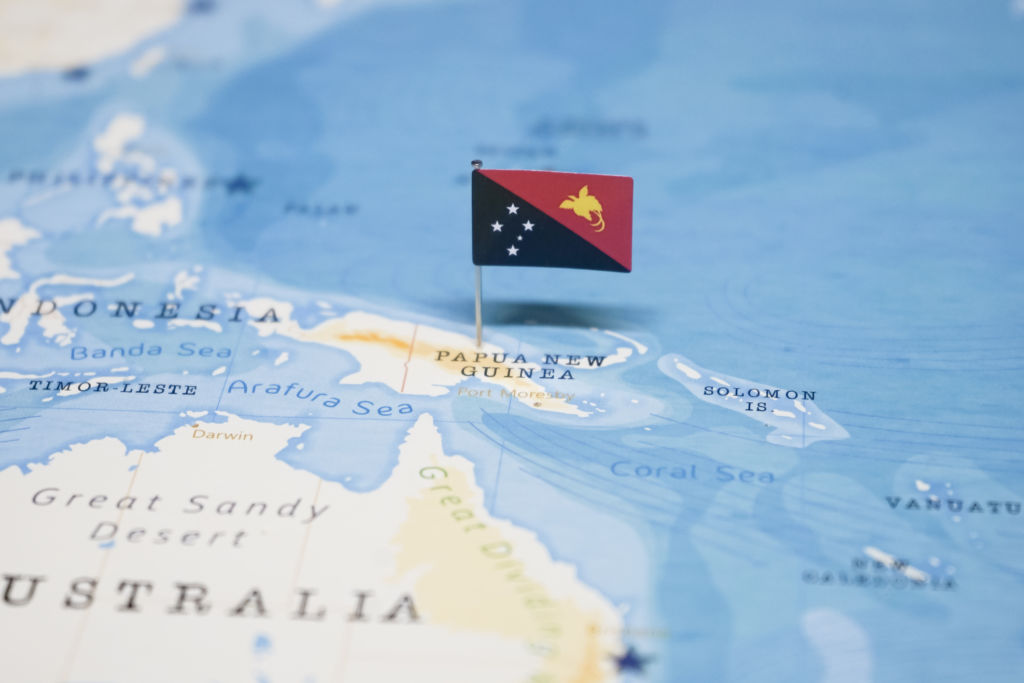
When leaders at Pacific Adventist University (PAU), based in Papua New Guinea, wanted to add more entrepreneurship undergraduate courses last year, it turned to WDI’s Education team and its Entrepreneurship Development Center for help developing and evaluating the new curriculum. A month ago, PAU debuted its new double major in accounting and entrepreneurship.
Twenty-six students have enrolled in the first course – Principles of Entrepreneurship. PAU also is offering an entrepreneurship diploma program at its affiliate campus, Sonoma Adventist College, and has 20 students enrolled in the first course. The course is a mix of online learning and on-campus instruction.
WDI Faculty Affiliate Julie Felker has worked with the school from the start, suggesting course offerings and providing feedback to faculty, which developed the curriculum drafts. She said the PAU faculty and administration should be lauded for their efforts.
“PAU far exceeded expectations in getting not one, but two entrepreneurship degree programs off the ground,” she said. “They really should be commended for their dedication and hard work in seeing this initiative through. (Business School) Dean Khin Maung Kyi and the faculty were personally committed to the project, and that’s why it succeeded.”

Since 2016, WDI has been supporting the Center for International Private Enterprise (CIPE) to build capacity in entrepreneurship education at PAU and other universities in Papua New Guinea (PNG).
A long-term goal of the work in PNG is to help the country grow its small- and medium-sized business sector and diversify the economy away from reliance on mineral resources. WDI and CIPE, through its work, want to change the mindset of business school students who usually find public service jobs or traditional professions. Instead, educators want students to cultivate an entrepreneurial mindset in which they are employers, not employees, Felker said.
“In partnership with the William Davidson Institute, CIPE’s work to create and improve entrepreneurship curricula in PNG universities has made significant contributions in paving entrepreneurship as a viable career path to young Papua New Guineans,” said Sarah Yun, a program officer for Asia and The Pacific for CIPE. “WDI’s expertise in entrepreneurship pedagogy has been invaluable throughout this journey.”
Felker is scheduled to make two consulting trips to PNG in the near future. This summer, she will deliver a training program related to entrepreneurship to faculty and administrators at PAU and three other universities also working with CIPE and WDI. The training topic will be determined after consulting with the four universities to assess their needs and interests.
WDI has been working with CIPE to enhance an entrepreneurship and civic participation training program in North Macedonia targeting recent university graduates (21-26 years old). In the most recent and final phase of this engagement, a WDI consultant provided feedback on the entrepreneurship curriculum, and contributed training materials on customer discovery and lean startup. f
While in Skopje, YEF invited WDI Faculty Affiliate Stephen Brand and WDI Senior Project Manager Kristin Kelterborn to be guests on their podcast, “Skills That Pay the Bills.”
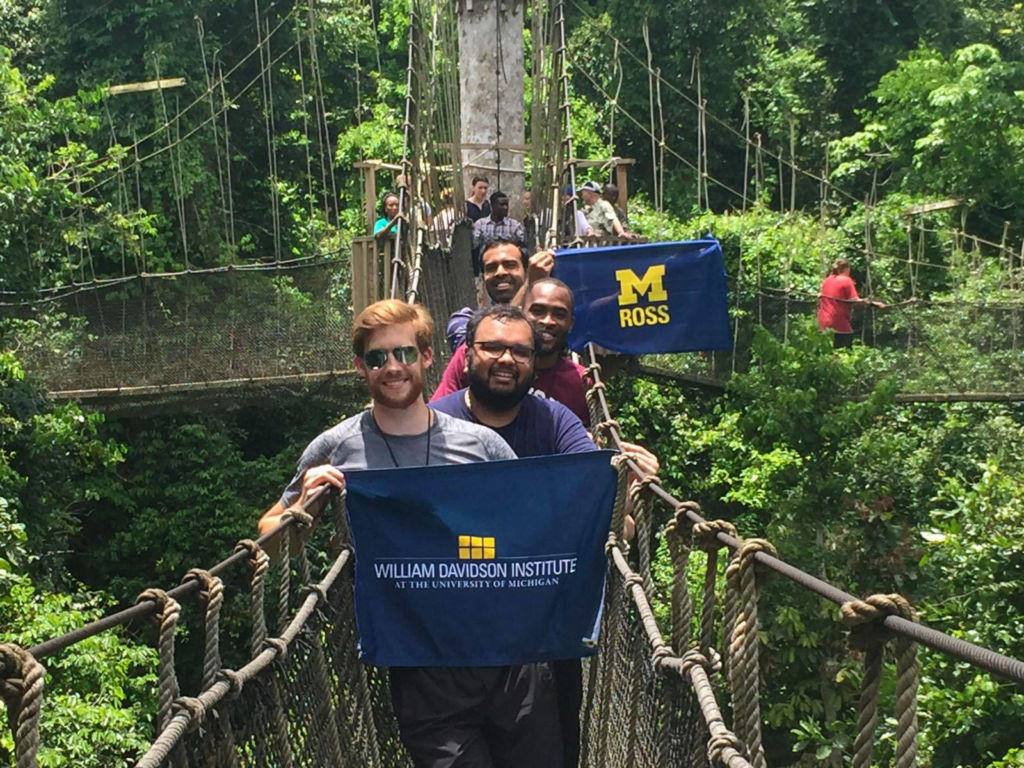
A 2018 WDI MAP team in Ghana.
Carrie Boyle, a MBA student at Michigan’s Ross School of Business, hopes to work in philanthropy somewhere in the U.S. after graduation. But for a couple of weeks in March, she is excited to be traveling to India as part of the school’s annual Multidisciplinary Action Projects (MAP).
“Working in another country is something I may never get the chance to do again,” she said. “This will be my first time in India and the country really interests me.”
Boyle and her teammates will work with Michigan Academy for the Development of Entrepreneurs (MADE), a nonprofit institute established at Ross by the Zell Lurie Institute for Entrepreneurial Studies, in partnership with WDI and Aparajitha Foundations. MADE works with entrepreneurship development organizations in India to help entrepreneurs operating small- and medium-sized enterprises (SMEs) succeed.
Boyle said she had some criteria when looking for MAPs that interested her.
“I wanted an opportunity to be on the ground having meaningful conversations with the people most immediately impacted by SMEs,” she said. “SMEs employ so many people and impact so many lives.”
Her teammate Shoko Wadano said she too is interested in working with SMEs, “which are very common in India.”
“I’m interested in how businesses mature in India,” she said. “I want to learn what pressures and impacts SMEs have in common, and what kind of value we can bring to them.”
WDI is sponsoring the MADE MAP project along with 10 others this year. MAP is an action-based learning course in which MBA students receive guidance from faculty advisors from WDI and Ross. Each project requires analytical rigor, critical thinking and teamwork. (Find out more about WDI’s MAP projects over the years here.)
After learning about their projects and conducting secondary research for several weeks, the student teams spend two to four weeks working with their organizations in the field.

David Butz
“The complementarities between the talents our students bring and what our sponsors need are sublime,” said David Butz, a WDI senior research fellow in the Healthcare sector who is an advisor on two projects. “Our students experience impact in brand new ways. Our sponsors learn, too, how disciplined management methods can yield dramatic innovations.”
Butz said he enjoys working with the student teams on MAP because it “poses such a unique challenge for both the students and their sponsor organizations, and forces us all to think big.”
“For me, the best achievements are tangible, direct and narrow but at the same time big and high-impact,” he said. “In our short time, can we help to break some key bottleneck, expedite a critical process pathway or otherwise liberate resources and expand capacity? Is the innovation scalable or replicable elsewhere? Do the students and organizations thereby feel empowered?”
Here is a summary of each WDI-sponsored MAP project:
Aravind Eye Care System – India
MAP Team: Rohan Dash, Sid Mahajan, Aman Rangan, Nik Royce
Aravind Eye Care System (AECS) is a vast network of hospitals, clinics, community outreach efforts, factories, and research and training institutes in south India that has treated more than 32 million patients and has performed 4 million surgeries since its 1976 founding.
AECS opened a tertiary eye care center in Chennai in September 2017 that will ultimately serve more patients than any other facility in the AECS system. The MAP team will formulate a detailed three-year strategic plan for Aravind Eye Hospital in Chennai.
CURE International, Inc. – Kenya, Ethiopia, Zambia, Uganda
MAP Team: Dominique James, Sarah Raney, Hannah Viertel, Olga Vilner Gor
CURE operates clubfoot clinics in 17 countries around the world, each tasked with helping children and families deal with the congenital deformity that twists the foot, making it difficult or impossible to walk.
For CURE, the student team will develop a strategic evaluation framework to assess opportunities for market entry and expansion building on global data.
Ghana Emergency Medicine Collaborative – Ghana
MAP Team: Benjamin Desmond, Benjamin Quam, Nicholas Springmann, Vishnu Suresh
The Ghana Emergency Medicine Collaborative aims to improve emergency medical care in Ghana through innovative and sustainable training programs for physician, nursing and medical students. The goal of the training programs is to increase the number of qualified emergency health care workers retained over time in areas where they are most needed.
The MBA team will formulate a detailed strategy to implement interoperable digital payment systems in Ghanian hospital emergency departments.
India Investment Fund – India
The India Investment Fund is working to become the first international, student-run fund at the Ross School of Business. Ross MBA students would be responsible for investing, managing and growing a real investment portfolio.
MAP Team: Charlie Manzoni, Patrick Riley, Queenie Shan, Sheetal Singh
The student team will conduct due diligence on Indian small- and medium-sized enterprises to assess viability for investments, and an appropriate financing instrument.
Infra Group – Ethiopia
MAP Team: Rin Chou, Chandler Greene, Yuki Ito, Brittany Minor
Infra Group is diversified international group with business units in financial services, industries and infrastructure development. Infra Group helps build a more prosperous society through global-scale business development with integrity as its top priority.
The MAP team will conduct due diligence on a group of small- and medium-sized enterprises (SMEs), and recommend which ones to invest in and what amount to invest.
Lviv Business School & Ukranian Catholic University – Ukraine
MAP Team: Blake Cao, Emily Fletcher, Kelsey Pace, Adam Sitts
Lviv Business School and Ukranian Catholic University is a private educational and research institution in western Ukraine.
The student team will undertake a needs assessment of the small- and medium-sized enterprises (SMEs) to determine if Lviv Business School should begin offering consulting services to these SMEs and if so, how those should be structured.
MADE – Poornatha/Aparajitha Foundations – India
MAP Team: Carrie Boyle, Lawrence Chen, Dillon Cory, Shoko Wadano
Michigan Academy for the Development of Entrepreneurs (MADE) is a nonprofit institute established at the Ross School of Business by the Zell Lurie Institute for Entrepreneurial Studies, in partnership with WDI and Aparajitha Foundations. MADE works with entrepreneurship development organizations in developing countries to give individuals operating businesses in these environments the knowledge and best practices they need to thrive.
The MAP team will develop an expansion plan for MADE in the southern Indian state of Tamil Nadu.
The Ihangane Project – Rwanda
MAP Team: Lauren Baum, Nadia Kapper, Paul Mancheski, Jason Yu
The Ihangane Project (TIP) empowers local communities to develop sustainable, effective, and patient-centered health care delivery systems that holistically respond to the needs of vulnerable populations. Partnering with Ruli District Hospital and its associated health centers, TIP is working to identify key strategies for improving health outcomes.
The student team will develop a business model to grow the ready-to-use therapeutic food that is used to treat severe, acute malnutrition.
WEEKEND MBA MAP PROJECTS
Awash Bank – Ethiopia
MAP Team: Matthew Campbell, Joshua Dodson, Joseph McCarty, Aman Suri
Awash Bank, a private, commercial bank, was established in 1995 and features more than 375 branches across the country.
The MAP team will develop a product that can provide capital to small- and medium-sized enterprises (SMEs) in Ethiopia by utilizing remittances already being sent back to that country. The students will work with the bank on all aspects of the loan product. They also will give the bank recommendations on how to monitor the loan and provide business support to SMEs that borrow from the fund.
Grace Care Center – Sri Lanka
MAP Team: Daniel Cady, Yizhou Jiang, Gerardo Martinez, Daniel Murray
The Grace Care Center (GCC) is a home to about 70 orphaned children that offers daycare services and vocational training. It also is home to several poor and displaced seniors, many of whom have chronic health issues such as hypertension and diabetes.
Past MAP student teams from the Ross School of Business developed a diabetic care center model for GCC. This year’s student team will examine the current model and make any needed updates and revisions.
International Clinical Labs – Ethiopia
MAP Team: Emily Mascarenas, Torre Palermino, Alexander Santini, Matthew Traitses
ICL was established in 2004 to provide quality laboratory service all over Ethiopia. ICL serves more than 240 health care centers throughout the country, and is expanding its service throughout Ethiopia.
The Ethiopian government is building its first medical waste incinerator facility outside the capital city of Addis Ababa and has committed to building seven more around the country. WDI is assisting a group of business managers with business plan advice who are interested in managing the business aspects of operating the incinerators. The MAP team will develop a proposal to be presented to the government later this year for the business managers to operate the incinerators.
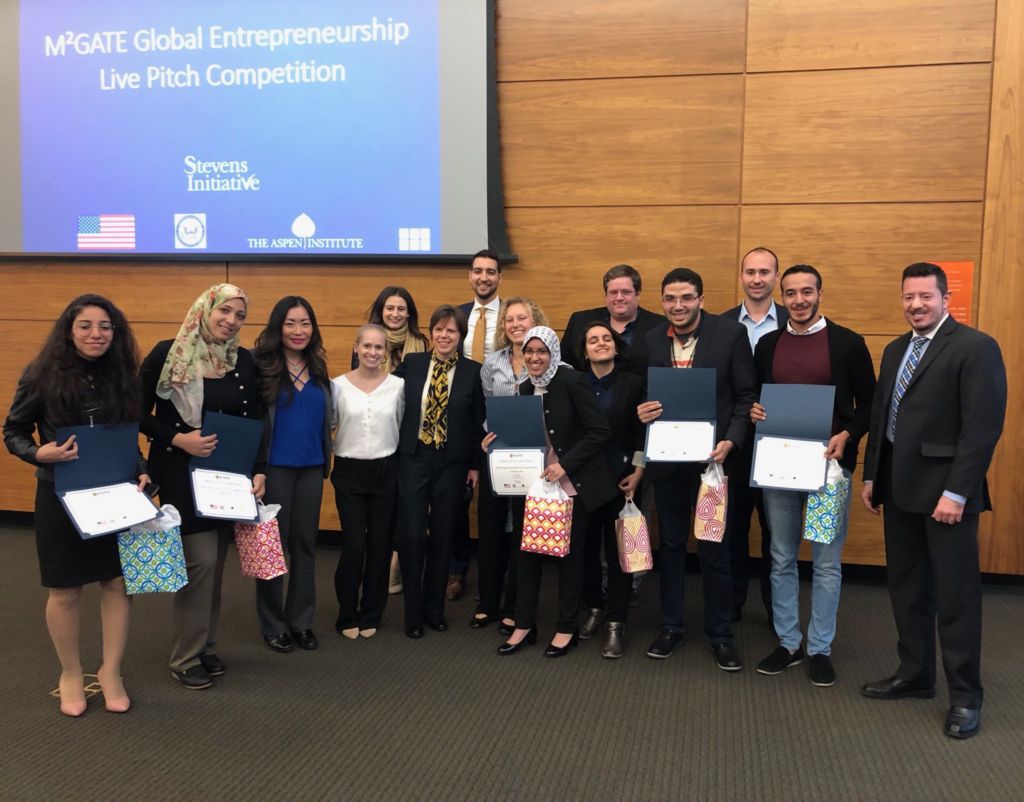 WDI designed an innovative virtual exchange program using modern technologies to give students an exciting real-world learning experience.
WDI designed an innovative virtual exchange program using modern technologies to give students an exciting real-world learning experience.
The latest WDI Impact Report, “Building Bridges Through Virtual Collaboration,” chronicles how WDI utilized the latest virtual learning tools to bridge the gap between countries, communities and cultures and bring students together solve real-world problems while also honing the 21st century skills they need to excel in the modern workplace. (You can read a “flip book” version of the report here.)
The MENA-Michigan Initiative for Global Action Through Entrepreneurship program – M²GATE for short – brought together more than 400 students from five Michigan university campuses and their peers in Egypt, Libya, Morocco and Tunisia to find entrepreneurial solutions to social challenges in the Middle East and North Africa (MENA) region.
“M²GATE graduated more than 400 students in five countries and deeply touched their lives,” said Amy Gillett, vice president of Education at WDI and academic director of M²GATE. “For many, the program was transformative. The impact report explores this in detail and serves as a valuable resource for other institutions contemplating a virtual exchange.”
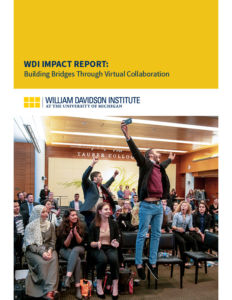 For the program, all teams worked virtually to develop social entrepreneurship projects and accompanying pitches over an eight-week period with the help of instructors, mentors, and successful entrepreneurs from MENA and Michigan. WDI believes entrepreneurship is a crucial catalyst of economic growth and an effective way to cure society’s ills, which is why it was the focus of the program.
For the program, all teams worked virtually to develop social entrepreneurship projects and accompanying pitches over an eight-week period with the help of instructors, mentors, and successful entrepreneurs from MENA and Michigan. WDI believes entrepreneurship is a crucial catalyst of economic growth and an effective way to cure society’s ills, which is why it was the focus of the program.
At the end of each of the three cohorts, the program hosted a virtual competition with judges naming winners based on scalable solutions. The winning team from each cohort then participated in a Nov. 14 pitch competition at the University of Michigan.
M2GATE is supported by theStevens Initiative, which is sponsored by the US Department of State and administered by the Aspen Institute. The Stevens Initiative is also supported by the Bezos Family Foundation and the governments of Morocco and the United Arab Emirates.
“The Stevens Initiative’s virtual exchange programs foster meaningful cross-cultural interactions and relationships while also honoring the legacy of Ambassador Stevens,” Gillett said. “We were privileged to play a role in advancing this mission with the M²GATE program. ”
This is the third impact report in an ongoing series that detail the long-term impact WDI is having in certain sectors or geographies. The first WDI Impact Report, “Improving Business Education in the Philippines,” examined the Institute’s contributions to the five-year STRIDE project that focused on strengthening the science, technology, research and innovation capacity on the island nation.
The second WDI Impact Report, “Positive Change Through Actionable Metrics,” followed the work of the Institute’s Performance Measurement & Improvement group while pilot-testing a new framework in Brazil, Nicaragua and Peru designed to increase the impact of small, inclusive businesses and their distribution networks.
View the eBook Download the PDF
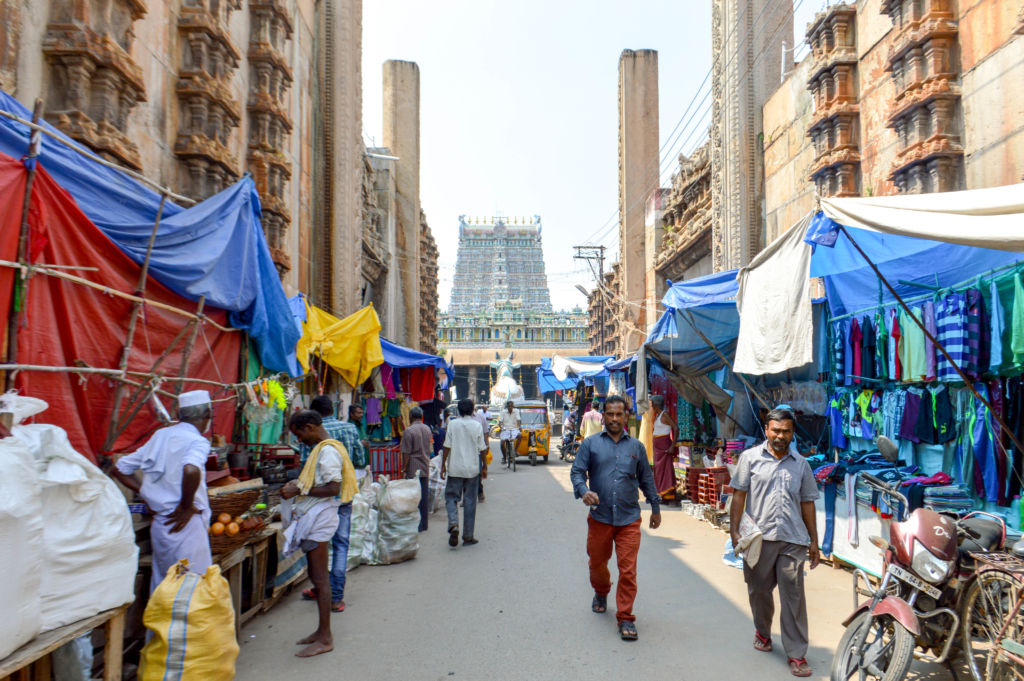
My grandfather was a farmer from Farley, Iowa, but in many ways he was also an entrepreneur. He experimented with innovative farming techniques, calculated and assumed financial risks in unpredictable environments and, most importantly, created value-added products for his customers. Like any effective executive, he managed multiple streams of revenue, aligned short-term objectives with steadfast goals, and grounded his decision-making in sustainability, which prioritizes long-term profitability. His land was both a business and a source of livelihood for himself and his community. It provided income and employment, food and shelter, stability and prosperity. Indeed, this is the impact and importance of entrepreneurship: It is, at its core, dignifying.

Chris Owen
But more recently, for farmers in both the U.S. and India, the narrative has been quite different. Water wars, climate change and debilitating debt due to stagnant crop prices have made their profession less about dignity and more about survival. Farming, it seems, has become a bad business. Many farmers are being forced to abandon their rural communities in search of “greyer pastures” in growing urban centers. In India alone, these urban centers are expected to grow by 250 million residents during the next 20 years. Rural Indians are moving into cities for work, the lure of modern conveniences, or simply to be closer to fellow migrant family members. Considering that India will also have the largest millennial workforce in the world by 2027, we must ask: How will cities sustain their residents’ need for fresh food, clean water, waste management and gainful employment? Government funds are already being stretched thin by increasing demands on transportation infrastructure, an expanding energy grid and other public services. National or international aid organizations may provide relief for society’s most destitute, but that still leaves a large middle class searching for economic stability—as well as lingering concerns regarding environmental sustainability and community cohesion.
Addressing these concerns is the primary purpose of Poornatha—the Madurai-based social enterprise with which I partnered as a WDI Global Impact Fellow this past summer. The mission of Poornatha is to foster socio-economic vibrancy and entrepreneurial resilience that contributes to cultural preservation and community-building throughout India. In collaboration with the Michigan Academy for the Development of Entrepreneurs (MADE) and WDI, we began an effort to co-design a scalable, transferable, affordable coaching curriculum for entrepreneurs in emerging economies. The goal of this program is to equip and empower entrepreneurs as values-centered, data-driven decision-makers who build enduringly successful businesses that strengthen their local communities. Over the course of 10 weeks, the team of four coaches and I interviewed two dozen entrepreneurs in Madurai to identify their most salient needs as business leaders. What were their most pressing skill or knowledge gaps? What were their specific market opportunities or business growth goals? What were the core values of their organizations? These conversations informed what is now an entrepreneurship education program for leaders of family-owned businesses, featuring training in cash flow analysis, marketing and brand management, leadership development and, most importantly, sustainable strategic decision-making.
Madurai has been an ideal test site for this program. Located in the southern state of Tamil Nadu, Madurai is both a holy site and a gritty industrial center nicknamed “The Temple City” and “The City that Never Sleeps.” Reminiscent of an American Rust Belt metropolis, it is home to rubber factories and sand mines, raw material distributors and textile manufacturers—and an engaged entrepreneurship network grappling with an influx of residents from surrounding rural communities. Though many business owners in the Poornatha Network are simply trying to provide sustenance for their families while navigating complex competitive markets, most also acknowledge and advocate for business practices that promote economic, environmental and social well-being. The challenge, of course, is identifying and incorporating these win-win-win solutions into traditional businesses models.
Entrepreneurship in India is primarily associated with local job-creation rather than scalable innovation. This focus does indeed promote human dignity by fostering local socio-economic vibrancy, but it also bypasses another important contribution of business to society: the creation of new products or services that address pressing human and/or environmental needs. It is these eco-innovations that will transform markets and enable local entrepreneurs to apply—and benefit from—the “both/and” triple-bottom-line approach to decision-making.
My grandfather lived on the same piece of land nearly his entire life. For his 80th birthday party, the list of attendees was so long that our family had to rent City Hall for the reception. He was a hometown hero—a food grower, a job provider and a respected cornerstone of his community. He was, in my mind, a triple-bottom-line entrepreneur who lived with dignity by cultivating the dignity within those around him. Though this permanence of place may be a luxury for most farmers, rural residents, small business owners and urbanites living in India today, Poornatha hopes that this new entrepreneurship education program will nurture a business ecosystem that promotes socio-economic vibrancy, sustainability and, most importantly, human dignity throughout Tamil Nadu and beyond.
Chris Owen is a dual-degree student at the Ross School of Business and the School for Environment and Sustainability at the University of Michigan.
This article was originally published on NextBillion, which is managed by WDI.
Image: Market in Madurai, India (via Francisco Anzola)
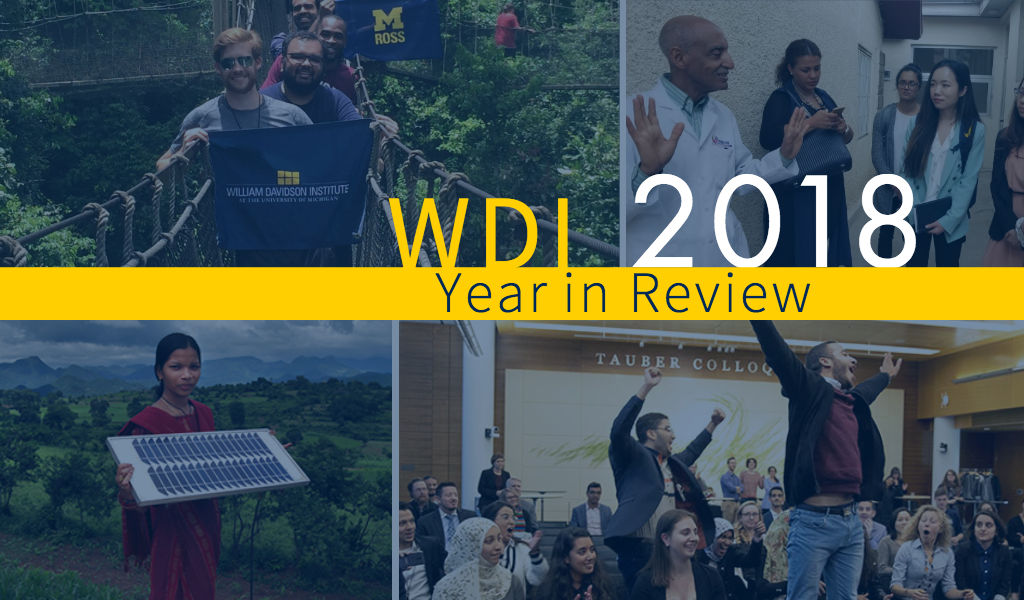
Improving reproductive health supply chains to boost access to family planning products in Mozambique. Educating senior managers from around the Baltics. Helping both investors and enterprises they support better measure impact in Latin America. Creating new MBA-level curriculum for universities in Papua New Guinea.
These partner projects are just a few examples of the work WDI performed around the world in 2018. Working with a robust set of private sector and nonprofit partners on a diverse number of projects, WDI effectively applied business skills in low- and middle-income countries (LMICs) in impactful ways.
In all, WDI teams worked on more than 40 projects with more than 40 partners in more than 40 countries this past year that focused on our core consulting sectors—education, energy, finance and healthcare, as well as our management education programs, entrepreneurship development, measurement and evaluation services and the deployment of University of Michigan graduate students around the world.
“In 2018, I was impressed by the degree to which the Institute integrated the energy and talents of our staff, University of Michigan students and faculty leaders to address multiple challenges facing for-profit and non-profit organizations,” said WDI President Paul Clyde. “While most of these projects were in one of our key focus areas—Energy, Healthcare, Management education or Finance—many drew on expertise that cut across sectors or disciplines to deliver more complete solutions.”
WDI’s project work leveraged the knowledge and expertise of the Institute’s staff, its research fellows and faculty from the University of Michigan and other world-class higher education institutions to develop business solutions in LMICs. Additionally, WDI disseminated what it learned doing work in the field through published research reports, academic journal articles and notable blog posts. The Institute also contributed to U-M student and faculty enrichment by hosting several compelling speakers at the Ann Arbor campus.

Members of the LIFE project consortium visit a produce stand in Turkey and interviews the owner on how a green grocer sources his produce and his perspective on how he could potentially benefit from the LIFE Food Enterprise Center.
Our work in 2018 spanned the globe and included projects on a wide variety of topics and issues. Among the work, WDI launched a new consulting focus area in the energy sector, connected hundreds of students using virtual technology, developed a model to train nurses for a planned hospital in Ethiopia and trained refugees in the food industry in Turkey. Here are a few highlights from our project work this past year.
Throughout the past year, WDI has widely shared its research and field work a to a broader audience through a number of publications and online journals.
“Participating in the project to test the framework provided us a holistic understanding of poverty. WDI gave us the tools to guide decision-making and track progress towards broader development goals through data collection and analysis.”
—Mónica Varela, director of impact for the Clinton Giustra Enterprise Partnership
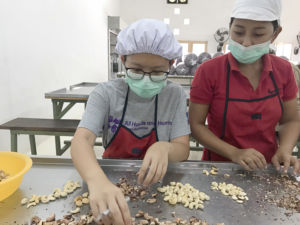
WDI intern Nadia Putri (pictured left)
A number of WDI employees penned blogs on their work or trends impacting their research that appeared on the Institute’s website.
In 2018, WDI hosted speakers as part of the the Institute’s Global Impact Speaker Series. While on campus, many of the speakers sat down for one-on-one interviews.
WDI’s M²GATE program, which brought together more than 500 students from five Michigan university campuses and their peers in Egypt, Libya, Morocco and Tunisia to find entrepreneurial solutions to social challenges in the Middle East and North Africa (MENA) region, culminated Nov. 14 with three teams participating in a pitch competition.
The team EcoMENA, comprised of five students from Egypt and two U-M undergrads, was named the winner by a panel of judges. Their project proposed working with the zabaleen, or garbage collectors, in Cairo to help them turn the recycled materials they collect into jewelry and other products they can sell. This would reduce the amount of plastics and metal burned or dumped into landfills, and also help some of the zabaleen earn extra income. (Below is EcoMENA’s pitch video.) EcoMENA team members include Egyptian students Amira Nour Soudky Dawoud, Mohamed Ashraf Abdelaleim Hassan, Naglaa Ibrahim Hussein Ali, Omar Aboutaleb and Samar Mohamed Taha Zaatar; and U-M students Annahita Akbarifard and Jackie Spryshak.
The other two finalist teams were “The Alters,” a team from Morocco that proposed an after-school program to improve the soft skills of students, and “Kaizen,” a Tunisian team that wanted to encourage more recycling in the country by rewarding people who did.
For the MENA-Michigan Initiative for Global Action Through Entrepreneurship (M²GATE) program, all teams worked virtually to develop social entrepreneurship projects and accompanying pitches over an eight-week period with the help of instructors, mentors, and successful entrepreneurs from MENA and Michigan. At the end of each of the three cohorts, the program hosted a virtual competition with judges naming winners based on scalable solutions featuring science, technology, engineering, and math – or STEM-based – innovations. The winning team from each cohort then participated in the pitch competition at U-M.
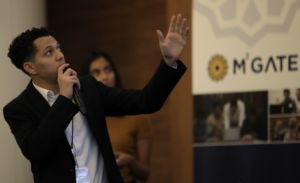
“The Alters” team member Anas Ettayea.
At the Nov. 14 event, each team had about 5-7 minutes for their presentation before a panel of four judges that included Ross School entrepreneurship professors and startup consultants.
EcoMENA team member Naglaa Ibrahim Hussein Ali said the team at times had its ups and downs as they put together the proposal and pitch. But in the end the team “came up with the best pitch we can do” and in the end, “we love each other.”
She said she never imagined the team would win and was very happy that they did.
“I won’t ever forget this experience,” she said.
Another team member, Mohamed Ashraf Abdelaleim Hassan, said he enjoyed spending the week with the teams from Morocco and Tunisia and the friendships they developed. He said he had participated in other pitch competitions in school in Egypt but this was the first time he ever won.
He said he will use his M²GATE experience as he continues his engineering and social enterprise studies at the American University in Cairo.
“This program was beneficial to me, it was useful for me and the other students,” he said.
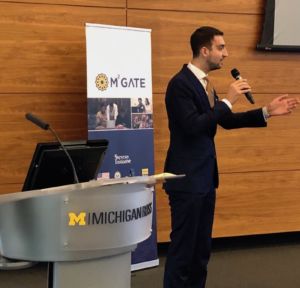
Mohamed Abdel-Kader.
U-M Dearborn senior Annahita Akbarifard said she signed up for the program on a whim and was glad she did. She said the program taught her to be better organized and improved her time management skills. She said it could be difficult to arrange times to video chat with her Egyptian teammates due to different time zones and other conflicts.
Akbarifard said it has been enjoyable getting to know her teammates better this past week.
“Sometimes when we would video chat I wouldn’t see their faces because the screen was blank,” she said. “Now seeing them in person, I’m like, ‘Oh you’re the person I emailed 50-plus times.’”
Ross School of Business Dean Scott DeRue said the M²GATE program is an opportunity for students to learn how to have a positive impact through business, entrepreneurship and social enterprise projects.
“This program is a hallmark of what we try to do at the University of Michigan, which is working across boundaries to bring people together to work to address the opportunities and challenges that we all face in our global society,” he said.
The program was funded by the Stevens Initiative, an international effort to build global competence and career readiness skills for young people in the United States, the Middle East and North Africa. The initiative honors the legacy of U.S. Ambassador Chris Stevens, who devoted his life to building bridges between people from different cultures.
Mohamed Abdel-Kader, executive director of the Stevens Initiative, said the students were there to honor the legacy of Ambassador Stevens. He said the ambassador was committed to connecting with young people and understanding the communities in which he worked. Ambassador Stevens “brought forward the best of American values,” Abdel-Kader said.
He told the teams that the cross-cultural skills they learned during the program are critical in today’s global world.
“We are in an age where these skills are incredibly important,” he said. “These types of executive skills of communication and collaboration and the ability to work across borders is incredibly important for the 21st century workforce.”
He said the virtual collaboration program supported by the Stevens Initiative has reached 28,000 students in 43 states and 17 countries in the Middle East and North Africa.
“Through that technology we can connect a student with someone they would have never met,” Abdel-Kader said.
He told the students that it was a “huge responsibility for you to be part of this program.” He then told them about how his Egyptian mother always told him not to waste food because it was a blessing. Likewise, participating in the M²GATE program was a blessing too.
“This is an opportunity you shouldn’t throw away,” he said. “So many students don’t get an opportunity to go abroad and connect with others. In this day and age when the relationships and dialogue between us are a challenge, take this as a blessing to represent your countries, represent your neighborhoods, represent your families, to connect with others and really drive home the values that you’re proud of and want represented in the global community. ”
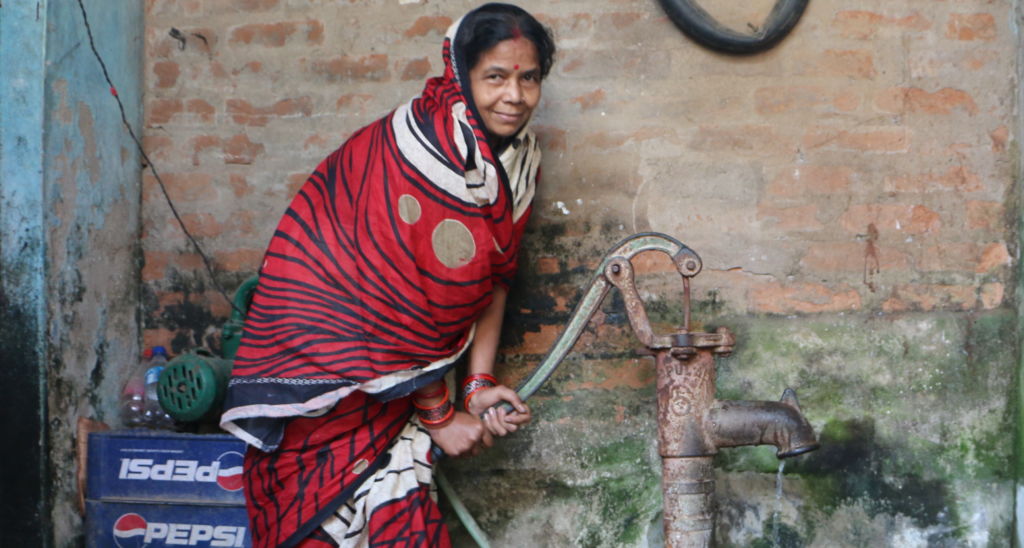
Tom Light, managing director of WaterEquity, the first-ever impact investment management firm with an exclusive focus on ending the global water crisis, is scheduled to be the next guest for the WDI Global Impact Speaker Series.
Light’s talk, “Liquid Assets: Investing to End the Global Water Crisis,” will begin at 5 p.m. on Nov. 27 in room R2240 at the University of Michigan’s Ross School of Business. It is free and open to the public.

WaterEquity’s commitment to, and knowledge of, water and sanitation investment opportunities in low- and middle-income countries guide its investment strategies that drive both sustainable financial returns and social impact. By investing in enterprises operating in impoverished communities, WaterEquity’s investments help these enterprises scale up, meet increasing market demand and deliver universal access to clean, safe water and sanitation, the fund notes.
WaterEquity was established by Water.org, the charity co-founded by actor Matt Damon, to mobilize capital for water and sanitation enterprises serving the needs of poor people. Last month, WaterEquity announced the first close of its US $50 million flagship fund—WaterCredit Investment Fund 3 (WCIF3)—at US $33 million. Investors included Bank of America, the Overseas Private Investment Corporation (OPIC), Ceniarth LLC, Niagara Bottling, as well as the Conrad N. Hilton, Skoll, and Osprey Foundations. A second-close is projected before the end of the year.
As the first-ever impact investment fund manager with an exclusive focus on ending the global water crisis, WaterEquity transforms how capital markets work in order to finance the United Nations’ Sustainable Development Goals (SDGs). With annual investments in the SDGs totaling $1.4 trillion and their attainment estimated at $3.9 trillion per year, WaterEquity offers a critical solution to bridge the $2.5 trillion annual investment gap. By supporting the sustainable growth of water and sanitation enterprises in emerging markets, WaterEquity represents an unprecedented opportunity to end the global water and sanitation crisis for hundreds of millions of men, women, and children.
Light oversees all aspects of the business including strategy, operations and expansion. He has more than 18 years of experience in public and private capital markets in the areas of investment management, investment banking and fund development.
Previously, Light led Grameen Foundation’s impact investing strategy serving first as a fund manager and then as the Head of the Capital Management & Advisory Center. Prior to that, Light held executive-level positions in investment banking at UBS AG and in the nonprofit sector at the Clinton Health Access Initiative. He received his B.A with honors from the University of Michigan in Quantitative Economics, holds an MBA in Finance from the Wharton School at the University of Pennsylvania, and is a chartered financial analyst.
Learn more about WaterEquity in this article from WDI-affiliated site, NextBillion.net: “How Water.org ‘Took a Leap of Faith’ into Social Impact Investing.”
Photos courtesy of water.org